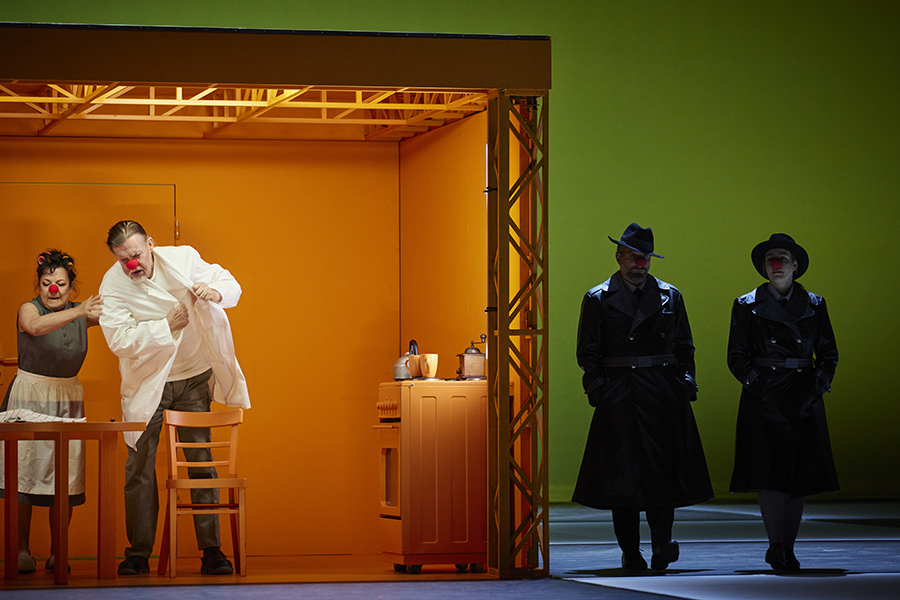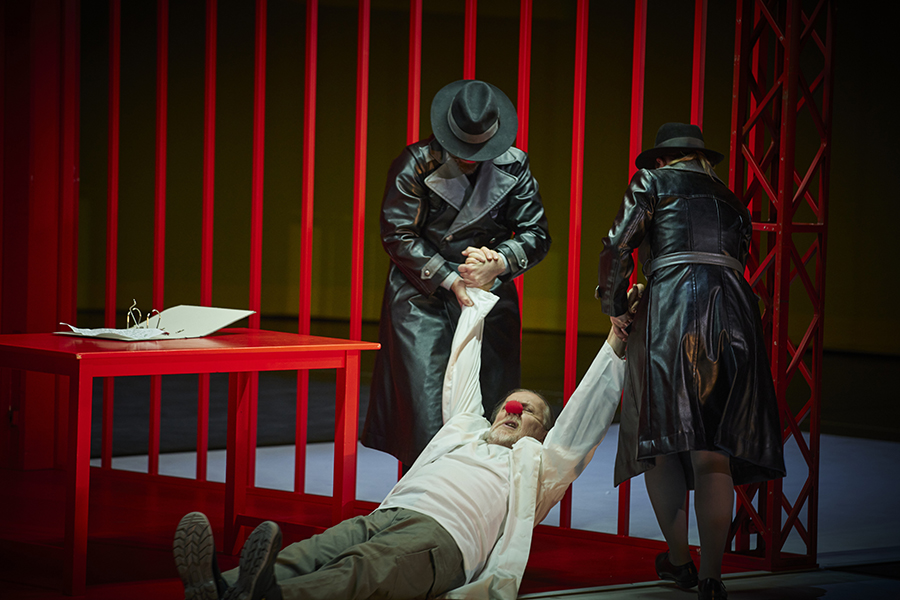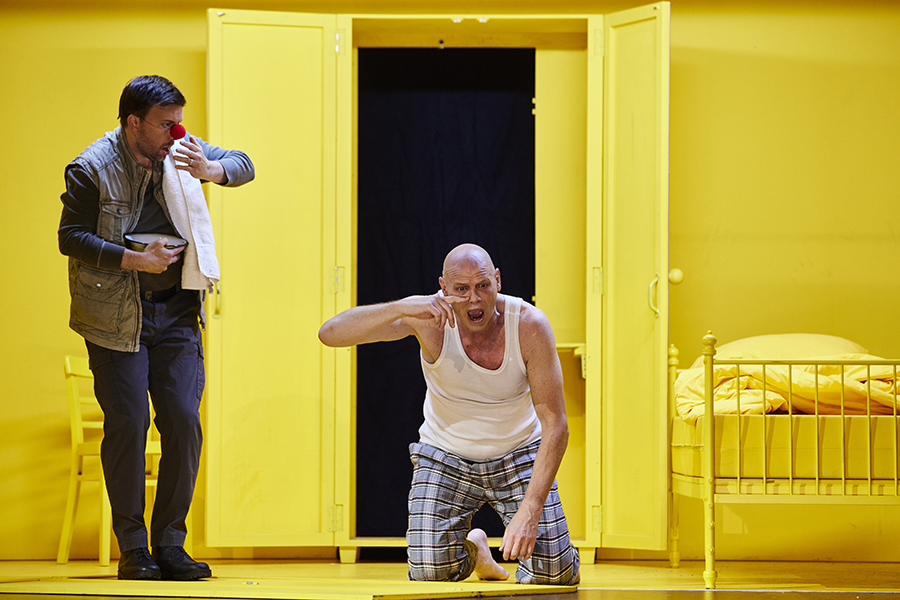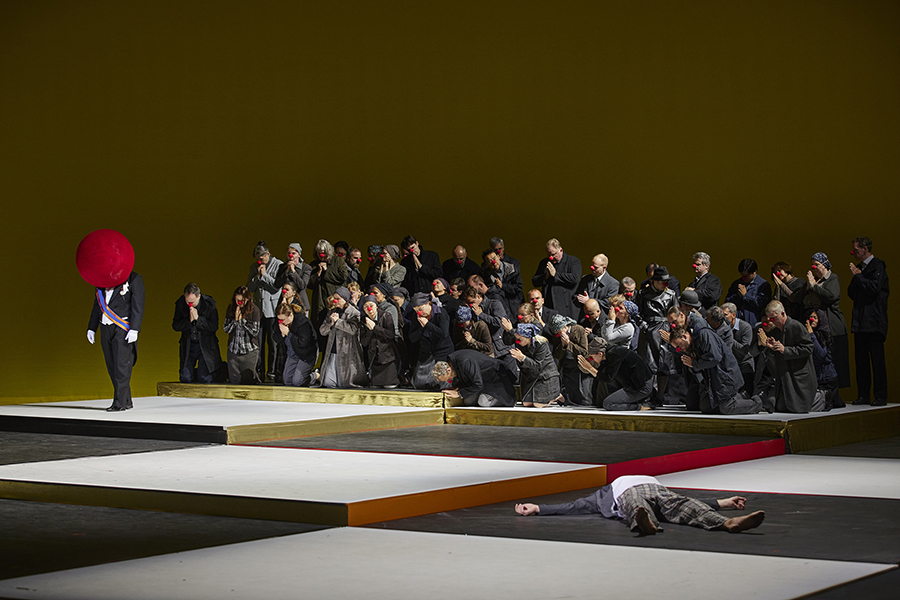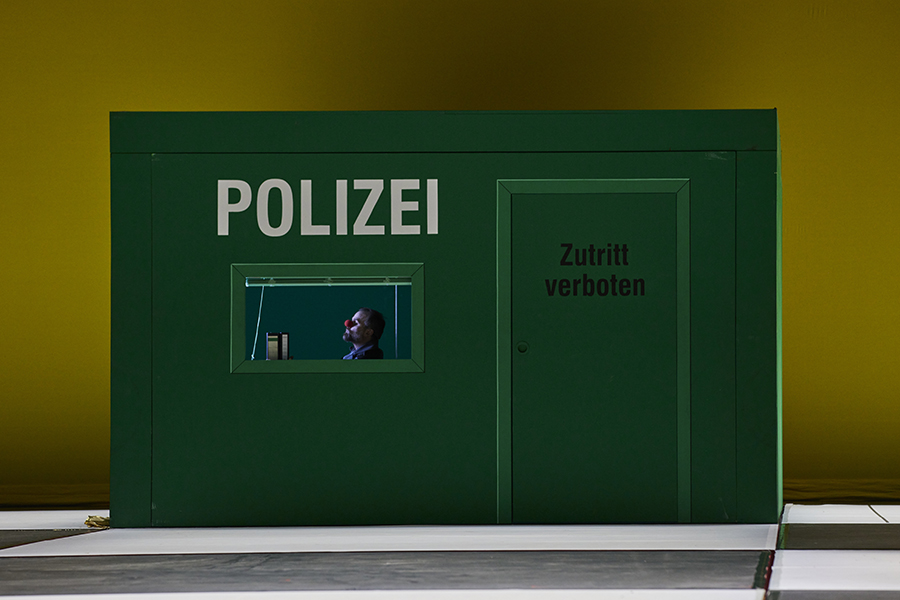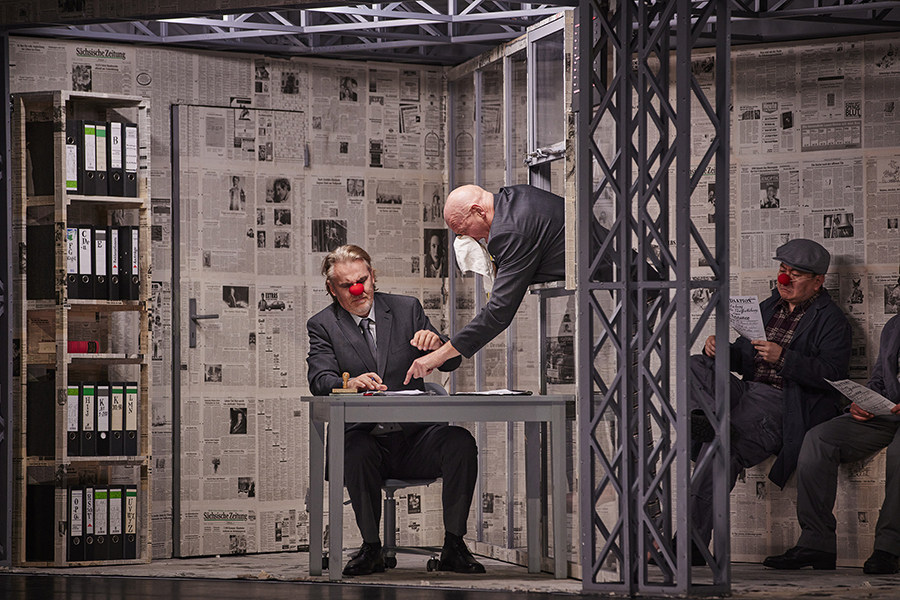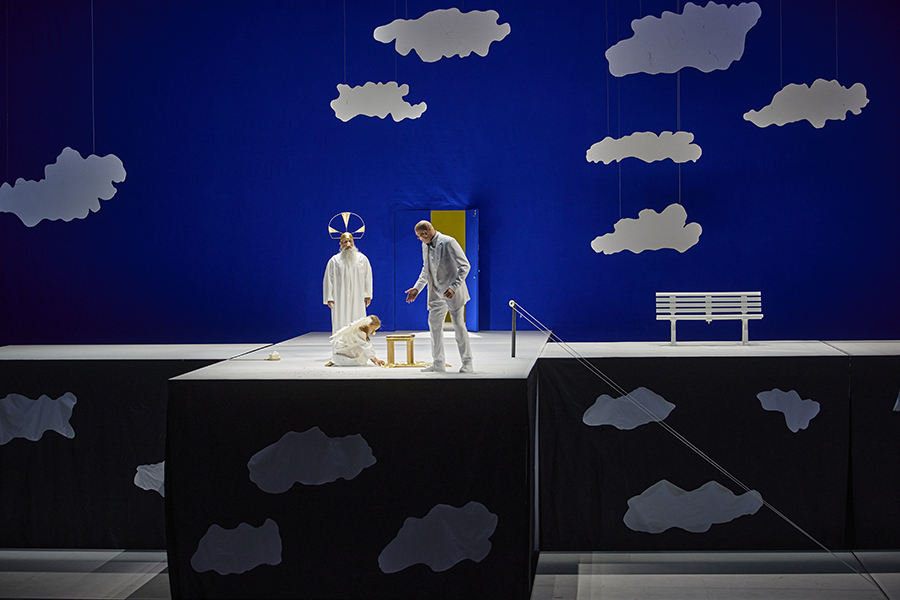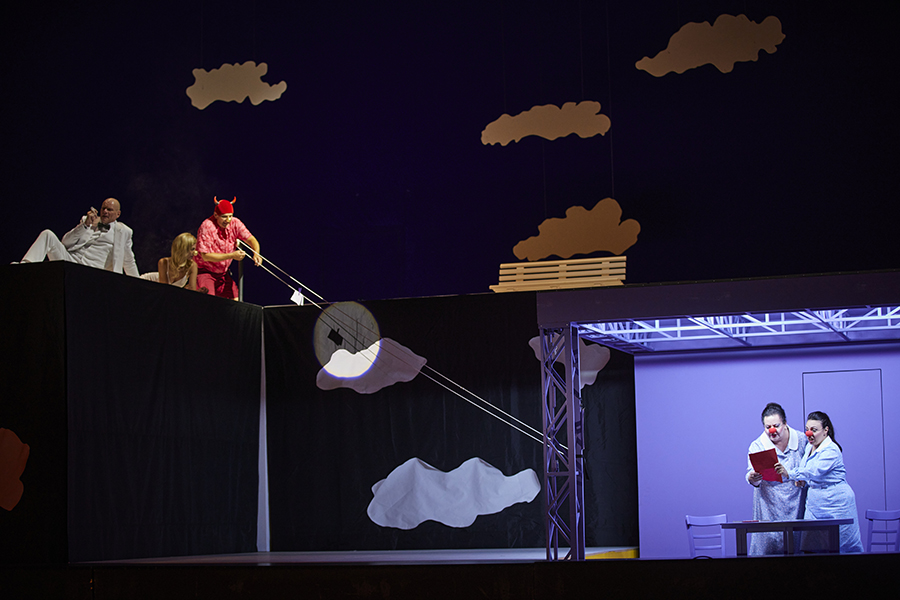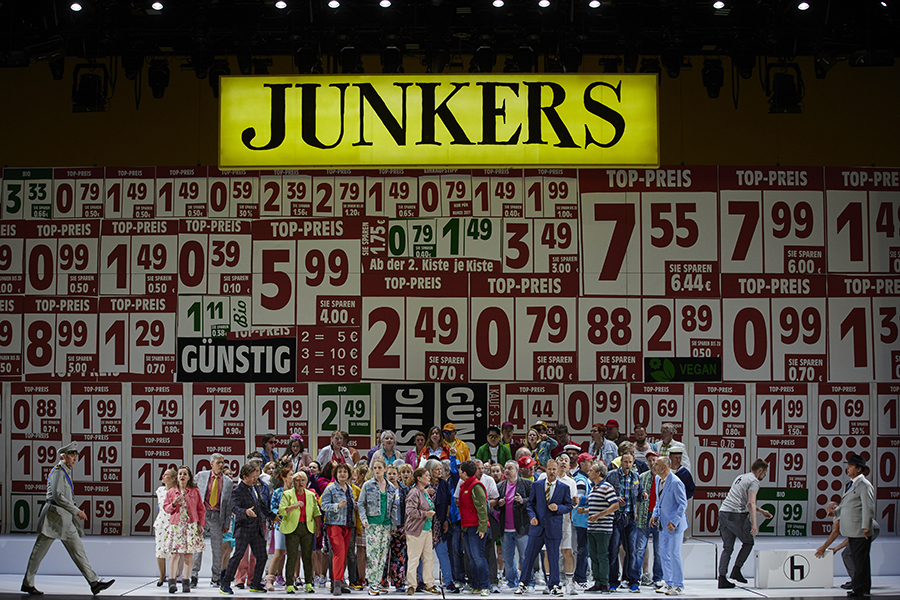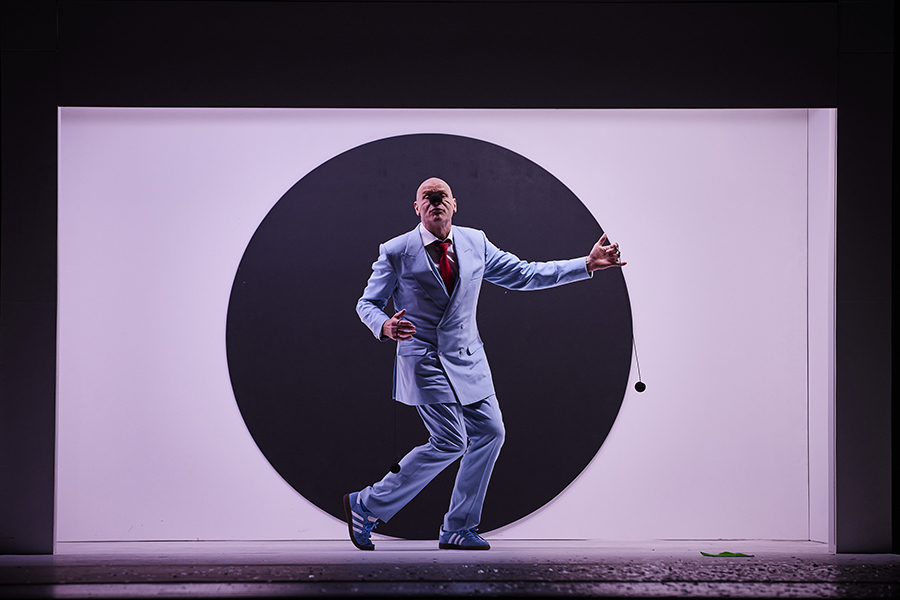Opera in three acts
Libretto by the composer based on the novella by Nikolai Wassiljewitsch Gogol. German by Helmut Wagner and Karl Heinz Füssl.
Performed in German with German and English supertitles
Premiere
2. July 2022,
No further performances in the current season.
Premiere cast
- Conductor Petr Popelka
- Staging Peter Konwitschny
- Set Design Helmut Brade
- Mitarbeit Bühne Igor Fürnberg
- Costume Design Helmut Brade
- Lighting Design Fabio Antoci
- Choir André Kellinghaus
- Dramaturgy Kai Weßler
- Platon Kusmitsch Kowaljow Bo Skovhus
- Iwan, sein Diener Timothy Oliver
- Iwan Jakowlewitsch, Barbier Jukka Rasilainen
- Tenor-Solo / Wachtmeister (Geheimagent) James Kryshak
- Sopran-Solo (Geheimagentin) Katerina von Bennigsen
- Der Wachtmeister (Der liebe Gott) Aaron Pegram
- Der Doktor (Jesus) Martin-Jan Nijhof
- Jarischkin (Der Teufel) Jürgen Müller
- Praskowja Ossipowna, Frau des Barbiers Roxana Incontrera
- Die Tochter der Podtotschina Alice Rossi
- Alexandra Gregorjewna Podtotschina, ihre Mutter Sabine Brohm
- Die Nase in Gestalt eines Staatsrats Ludovit Ludha
- Ein Oberst / Ein anderer Bekannter Gerald Hupach
- Ein Angestellter / Ein Major Tilmann Rönnebeck
- Ein Verkäufer / Ein Lakai / Ein Spekulant / Ein Bekannter Matthias Henneberg
- Chosrow Mirsa David Kramer
Sinfoniechor Dresden – Extrachor der Semperoper Dresden
Sächsische Staatskapelle Dresden
Explore
The Nose
The Nose – Making-of (3)
The Nose – Making-of (2)
The Nose – Making-of (1)
